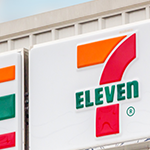Over $6 billion dollars per year… This is the cost to Australian employers for lost productivity and sick days attributable to drug an d alcohol use. It is little wonder why safety-critical industries are increasingly committing resources to introduce or improve...
You shall have a pass! FW Act permits required
It has been confirmed that an employer may require a union official to possess an entry permit under the Fair Work Act 2009 (Cth) (FW Act) even when the official has purportedly been invited on site by a safety representative. On 17 November 2017, the High Court...
Unlawful discrimination in the workplace – Employers’ exposure widens
To create an environment free from unlawful discrimination, bullying and harassment, employers know they should be prepared to recognise and prevent conduct which might give rise to these complaints in the workplace. But what employers need to also know now is that...
Codes, cut-offs and curtains: Major developments in Industrial Relations in the Building and Construction Industry in 2017
Building and construction industry industrial relations have experienced tumultuous events this year. Employers have witnessed the first anniversary of the commencement of the Code for the Tendering and Performance of Building Work 2016 (Code 2016), the revival of the...
New reforms to the Fair Work Act
The Fair Work Amendment (Protecting Vulnerable Workers) Act 2017 (Cth) (‘the Act’) makes significant changes to the Fair Work Act 2009 (Cth). These legislative changes apply to all employers, companies and employees covered by the Fair Work Act, including certain...
Navigating the new industrial manslaughter laws
The new and very serious offence of “Industrial Manslaughter” was introduced to Queensland on 23 October 2017, when the Queensland Parliament passed the Work Health and Safety and Other Legislation Amendment Act 2017 (“Act”). The Act represents the Palaszczuk...
Does it pay to be a casual?
The Federal Circuit Court has found that truck driver, (Mr. Skene) engaged on a casual basis under an enterprise agreement and who worked regular rosters, was entitled to annual leave under Part 2-2 of the Fair Work Act 2009 (FW Act). The finding of an entitlement to...
Restraints on labour flexibility: What all businesses need to know
Two major developments occurred in 2017 for the labour hire industry, and those engaging labour hire: A mandatory licensing scheme is set to be introduced in Queensland, impacting any business that engages with temp agencies, or any form of labour hire. Contractors...
Enterprise agreements – the end of an era?
Are enterprise agreements on the way out? The Fair Work Commission’s Annual Report 2016-17 highlighted: Fewer businesses are making enterprise agreements; The FWC are approving fewer enterprise agreements; The number of enterprise agreement applications being...
Safe Harbour and the Queensland Construction Industry
2017 has seen significant legislative changes at both the Commonwealth and the Queensland level, but while the Commonwealth changes (being the introduction of safe harbour) demonstrate a shift away from the imposition of rigid requirements upon corporate entities, the...
Project Bank Accounts – What does it mean and how will it work?
This article was amended on 24 May 2018. On 26 October 2017 the Queensland Parliament passed the Building Industry Fairness (Security of Payment) Act 2017 (Qld) (“BIFA”). It will commence on a date set by proclamation (which has not yet occurred). In addition to...
Strict Compliance and the Exercise of Options
A recent Court of Appeal decision has highlighted the need for careful drafting of agreements to anticipate changes to legislative requirements and industry standard contracts (JLF Corporation Pty Ltd v Matos [2016] QCA 355). This decision also confirmed that option...











